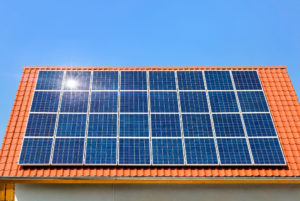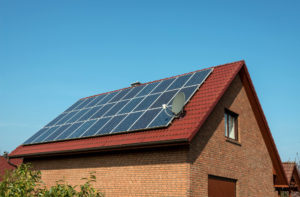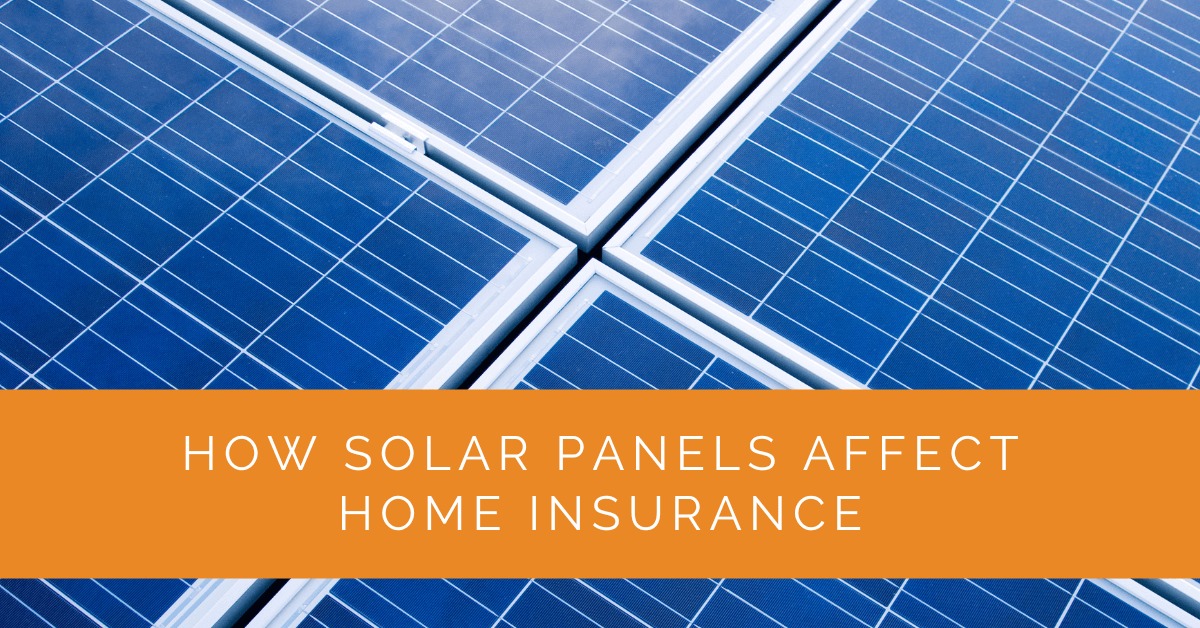The installation of solar panels on residential properties has become increasingly popular due to their numerous benefits, such as cost savings, environmental sustainability, and increased property value. However, homeowners must know how solar panels can impact their home insurance coverage. This article will provide a comprehensive understanding of the relationship between solar panels and home insurance, exploring coverage options, considerations, and the necessary steps to ensure adequate protection for your solar investment.
Contents
- 1 Key Takeaways
- 2 Benefits of Solar Panels
- 3 Home Insurance and Solar Panels
- 4 Does Home Insurance Cover Solar Panels?
- 5 Additional Coverage for Solar Panels
- 6 Informing Your Insurance Company
- 7 Evaluating Insurance Policies
- 8 Insurance Considerations for Leased Solar Panels
- 9 Insurance Costs for Solar Panels
- 10 Steps to Insure Your Solar Panels
- 11 Case Study: Insuring Solar Panels for Comprehensive Protection
- 12 Expert Insights From Our Solar Panel Installers About How Solar Panels Affect Home Insurance
- 13 Experience Solar Excellence with Us!
- 14 Conclusion
- 15 FAQ
Key Takeaways
- Installing solar panels offers numerous benefits, including cost savings, environmental sustainability, and increased property value.
- Standard homeowners’ insurance policies typically provide coverage for solar panels, but reviewing policy terms and considering additional coverage options for comprehensive protection is important.
- Informing your insurance company, evaluating policy terms, understanding coverage limitations, and considering insurance costs are essential to insuring your solar panels effectively.
Benefits of Solar Panels
Installing solar panels provides homeowners with various benefits beyond generating clean, renewable energy. These benefits include:
- Cost Savings: Solar panels can significantly reduce electricity bills by generating power from the sun, lowering the reliance on grid electricity.
- Environmental Sustainability: By harnessing solar energy, homeowners contribute to a greener, more sustainable future by reducing their carbon footprint.
- Increased Property Value: Solar panels can enhance the market value of a property, making it more attractive to potential buyers if you decide to sell.
Home Insurance and Solar Panels
When homeowners add solar panels to their property, it’s important to understand the implications for their home insurance coverage. Here’s what you need to know:
- Impact on Premiums: The presence of solar panels can affect your home insurance premiums. Insurers consider factors such as the system’s value, the risk of hail or wind damage, and the potential costs of repairs or replacements.
- Coverage Limitations: Standard homeowners’ insurance policies typically cover solar panels, considering them part of the dwelling structure. However, reviewing policy terms is crucial as there may be limitations, exclusions, or specific conditions related to solar panel coverage.
Does Home Insurance Cover Solar Panels?
Standard homeowners’ insurance policies generally provide coverage for solar panels, but it’s important to understand the specifics. Consider the following:
- Dwelling Coverage: Solar panels are typically covered under the dwelling portion of your policy, which protects the structure of your home.
- Policy Exclusions: Review your policy for any exclusions related to solar panels. Common exclusions may include wear and tear, damage caused by improper installation or maintenance, and cosmetic damage.
- Limits and Deductibles: Ensure that your policy provides sufficient coverage limits and manageable deductibles in the event of damage or loss to your solar panels.

Additional Coverage for Solar Panels
To ensure comprehensive protection for your solar panels, you may need to consider additional coverage options:
- Equipment Breakdown Coverage: This coverage can protect against mechanical or electrical breakdowns of your solar panel system that may not be covered under standard policies.
- All-Risk Coverage: All-risk or open-perils coverage provides broader protection against a wide range of risks, including accidental damage or theft.
- Extended Liability Coverage: As solar panels increase property value, reviewing your liability coverage is crucial to ensure it adequately protects your investment.
Informing Your Insurance Company
When installing solar panels, you must notify your insurance company to ensure accurate coverage. Consider the following:
- Prompt Communication: Inform your insurance company promptly after installing solar panels, providing accurate and updated information about your system.
- Documentation: Keep records of the installation, equipment specifications, and relevant warranties. This documentation will assist in the claims process if you experience damage or loss.
Evaluating Insurance Policies
Reviewing your existing home insurance policy is crucial to understand the extent of coverage for your solar panels. Consider the following:
- Policy Review: Carefully review your policy to determine if it adequately covers your solar panel system. Look for specific terms, limitations, or exclusions of solar panel coverage.
- Consultation with Insurer: Consult with your insurance provider to discuss coverage options, potential adjustments, and any additional endorsements necessary to ensure comprehensive protection for your solar investment.
Insurance Considerations for Leased Solar Panels
If you are leasing solar panels instead of owning them, there are additional insurance considerations to keep in mind:
- Separate Insurance Policies: In some cases, leasing solar panels may require a separate insurance policy, with the leasing company or installer responsible for obtaining coverage on the equipment.
- Responsibilities and Liabilities: Understand the division of responsibilities and liabilities between you, the homeowner, and the leasing company. Ensure both parties have appropriate insurance coverage to protect against potential risks or damages.

Insurance Costs for Solar Panels
The presence of solar panels can impact your insurance premiums. Consider the following factors:
- System Value: The value of your solar panel system will likely be a factor in determining your insurance premium. Ensure that your policy accurately reflects the value of your investment.
- Hail and Wind Damage: Given the exposure of rooftop solar panels, insurers may consider the risk of hail or wind damage. Knowing any specific coverage or deductibles related to these risks is important.
Steps to Insure Your Solar Panels
To effectively insure your solar panels, follow these essential steps:
- Research and Compare Insurance Companies: Look for insurance providers experienced in covering solar panel systems. Compare coverage options, pricing, and customer reviews.
- Inform Your Insurance Company: Notify your insurance company about installing solar panels, providing accurate and updated information about your system.
- Evaluate Coverage Options: Discuss coverage options with your insurance provider, ensuring you have adequate protection for your solar panel investment.
- Review Policy Terms: Carefully review your policy terms, including coverage limits, deductibles, exclusions, and any endorsements related to solar panel coverage.
- Maintenance and Monitoring Requirements: Understand any maintenance or monitoring requirements specified by your insurance provider to maintain coverage. Comply with these requirements to ensure ongoing solar panel protection and avoid any potential coverage gaps.
Case Study: Insuring Solar Panels for Comprehensive Protection
Background
Solar Panels Network USA recently assisted a homeowner in navigating the complexities of insuring their new solar panel system. The client had installed a significant solar array on their property and sought our guidance to ensure adequate insurance coverage and protection.
Project Overview
The project aimed to provide a thorough understanding of how solar panels impact home insurance coverage, evaluate existing policies, and identify additional coverage options to ensure comprehensive protection. Key objectives included understanding policy terms, exploring additional coverage options, and ensuring the client was fully informed and protected.
Implementation
Initial Assessment and Policy Review
We began with a detailed assessment of the client’s existing home insurance policy. This included reviewing coverage limits, exclusions, and specific terms related to solar panels. Our goal was to identify any potential gaps in coverage and understand the impact of the new solar installation on their policy.
Communication with Insurance Provider
Promptly informing the insurance company about the solar panel installation was a crucial step. We assisted the client in communicating with their insurer, providing accurate and updated information about the solar system, including its value, specifications, and installation details.
Exploring Additional Coverage Options
To ensure comprehensive protection, we explored additional coverage options:
- Equipment Breakdown Coverage: We recommended adding equipment breakdown coverage to protect against mechanical or electrical failures that might not be covered under standard policies.
- All-Risk Coverage: We discussed the benefits of all-risk coverage, which provides broader protection against a range of risks, including accidental damage or theft.
- Extended Liability Coverage: Given the increased property value from the solar installation, we advised the client to review and potentially extend their liability coverage to ensure adequate protection.
Policy Adjustments and Endorsements
Based on the initial assessment and discussions with the insurance provider, necessary adjustments and endorsements were made to the client’s policy. This included updating coverage limits to accurately reflect the value of the solar panel system and ensuring that all potential risks were adequately covered.
Maintenance and Monitoring Requirements
We emphasized the importance of regular maintenance and monitoring of the solar panel system. This not only helps maintain the system’s performance but also aligns with insurance requirements to avoid potential coverage gaps. The client was advised to keep records of all maintenance activities and inspections.
Results
Comprehensive Coverage Achieved
Through careful evaluation and adjustments, the client achieved comprehensive insurance coverage for their solar panel system. The additional coverage options provided peace of mind, knowing that their investment was protected against a range of potential risks.
Clear Understanding of Policy Terms
The client gained a clear understanding of their policy terms, including coverage limits, exclusions, and deductibles related to the solar panels. This knowledge enabled them to make informed decisions and avoid potential coverage issues in the future.
Ongoing Support and Monitoring
Solar Panels Network USA provided ongoing support to ensure the client adhered to maintenance and monitoring requirements. This proactive approach helps maintain the integrity of the solar panel system and keeps insurance premiums manageable by minimizing the risk of claims.
Summary
This case study illustrates the importance of thoroughly understanding and managing the insurance implications of installing solar panels. By promptly informing the insurance company, reviewing and adjusting policy terms, and exploring additional coverage options, Solar Panels Network USA helped the client achieve comprehensive protection for their solar investment. Regular maintenance and monitoring further ensured the system’s longevity and performance, providing the client with peace of mind and financial security.
Expert Insights From Our Solar Panel Installers About How Solar Panels Affect Home Insurance
When installing solar panels, it’s crucial to inform your insurance company to ensure proper coverage and avoid any potential gaps.
Solar Energy Consultant
Understanding your policy’s coverage limits and exclusions related to solar panels can help you ensure comprehensive protection for your investment.
Renewable Energy Specialist
Regular maintenance and monitoring can help maintain the integrity of your solar panels, potentially reducing insurance claims and keeping premiums manageable
Senior Solar Technician
Experience Solar Excellence with Us!
Trust in Solar Panels Network USA, where our seasoned experts deliver top-quality solar solutions for homes and businesses nationwide. With a legacy of countless successful installations and a commitment to sustainable energy, we’re your reliable partner in the solar journey. Ready for a brighter, eco-friendly future? Call us now at (855) 427-0058 and harness the power of the sun!
Conclusion
Understanding the relationship between solar panels and home insurance is crucial for homeowners installing solar panel systems. While standard homeowners’ insurance policies typically cover solar panels, reviewing policy terms and considering additional coverage options is important to ensure adequate protection for your investment. Informing your insurance company about installing solar panels, evaluating policy terms, and considering factors such as coverage limitations, liabilities, and insurance costs are essential to safeguard your solar panels effectively.
By researching and comparing insurance companies, you can find providers experienced in covering solar panel systems and select the best coverage options for your needs. Remember to keep accurate documentation of your solar panel system and promptly notify your insurer of any changes or updates.
Installing solar panels is an environmentally conscious and cost-saving investment. By taking the necessary steps to insure your solar panels are properly, you can enjoy the benefits of sustainable energy while having peace of mind knowing that your investment is adequately protected. Consult with insurance professionals to ensure you have the appropriate coverage for your specific circumstances and enjoy the rewards of solar power with confidence
FAQ
Do solar panels increase homeowners insurance?
Installing solar panels may impact homeowners insurance premiums, as insurers consider factors such as the value of the system and potential risks associated with solar panel installations.
How does solar affect my homeowners insurance?
Solar panels can affect homeowners insurance by potentially increasing premiums, requiring adjustments to coverage limits, and introducing specific terms and conditions related to solar panel coverage.
Do solar panels affect home value?
Yes, solar panels can positively impact home value. They are considered an attractive feature for homebuyers due to the potential for cost savings, environmental benefits, and energy independence.
About the Author
Solar Panels Network USA stands at the forefront of solar energy solutions, driven by a team of seasoned solar engineers and energy consultants. With over decades of experience in delivering high-quality solar installations and maintenance, we are committed to promoting sustainable energy through customer-centric, tailored solutions. Our articles reflect this commitment, crafted collaboratively by experts to provide accurate, up-to-date insights into solar technology, ensuring our readers are well-informed and empowered in their solar energy decisions.

